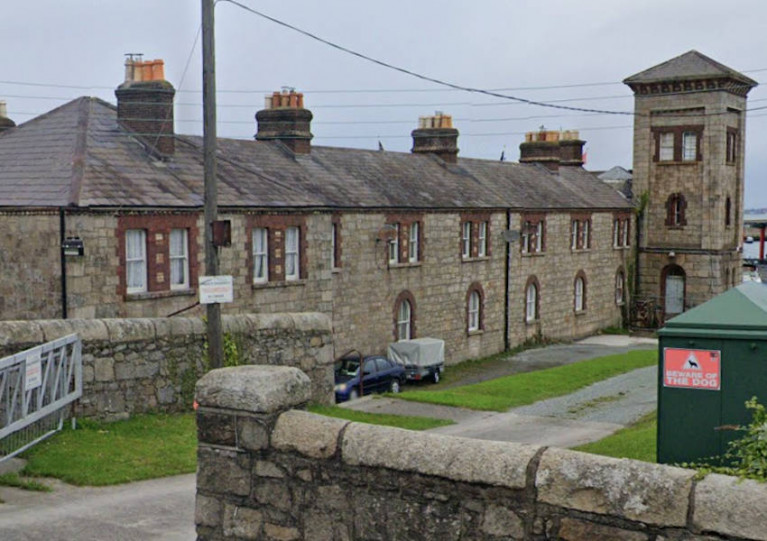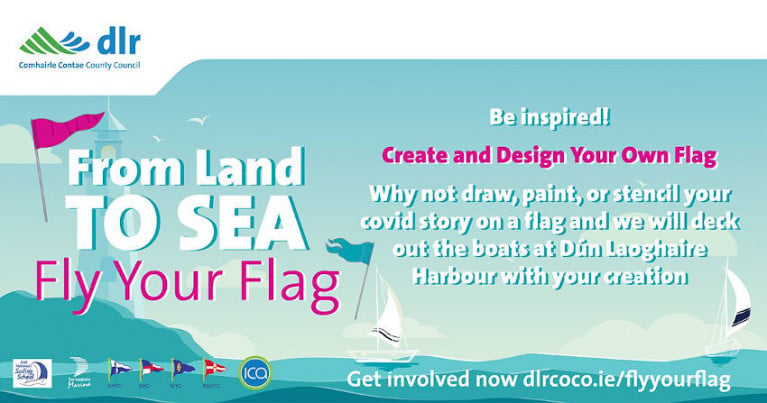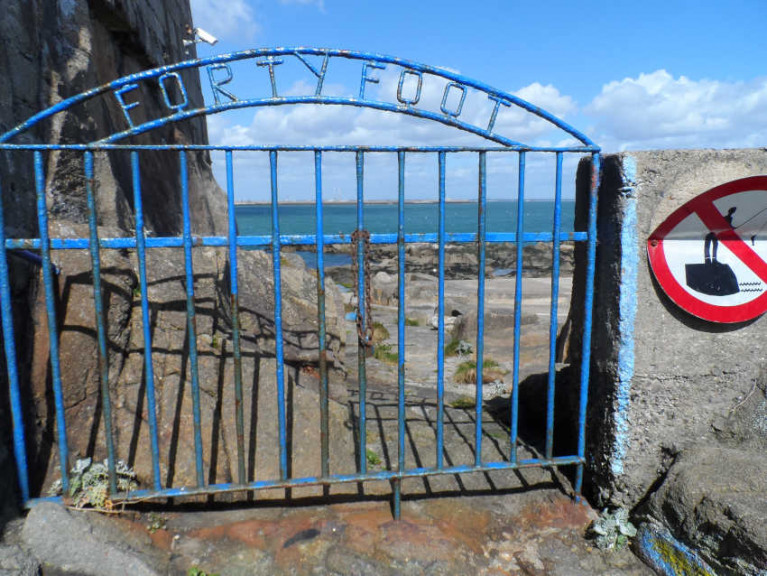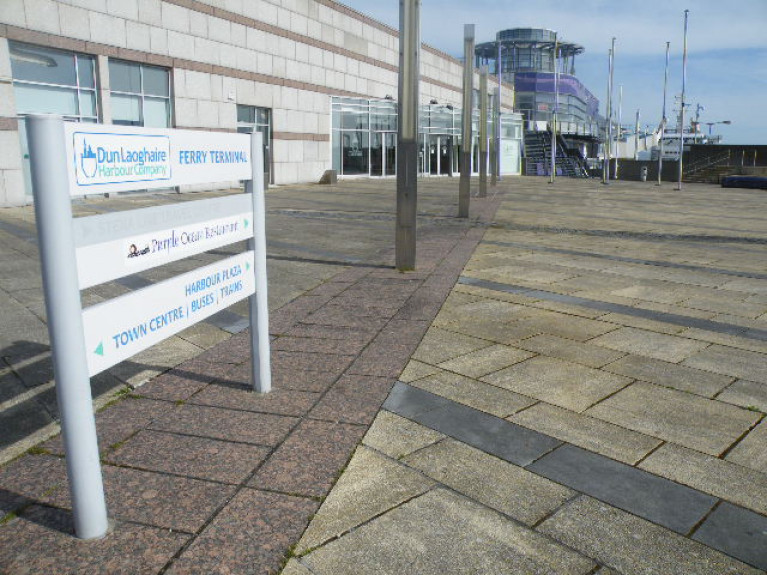Displaying items by tag: dlrcoco
Dun Laoghaire-Rathdown County Council Offering Opportunity for Watersports Providers’ to Occupy Harbour Premises
Dun Laoghaire-Rathdown County Council is offering an exciting opportunity for watersports providers to occupy premises in Dun Laoghaire Harbour.
The move is part of an effort by the local authority, which took control of the harbour in 2018, to grow public engagement with watersports in what’s widely renowned as a centre for sailing in Ireland.
“The ambition for this project is to provide a base/facility for public-facing watersports providers in this historical setting,” it says.
“Dún Laoghaire-Rathdown County Council is committed to encouraging and supporting the growth in sports participation generally, and specifically in watersports along the coastline and within the harbour.
“The proposal should help activate and enliven the space, bringing life and amenity to this part of the harbour,” it adds, referring to the Coal Harbour where the three self-contained off-grid container-based commercial units will be found.
Applications are due by 5pm on Friday 13 January 2023 via the eTenders website.
Safety Boat Patrols Now a Vital Part of Dun Laoghaire Harbour Operations
Afloat.ie recently highlighted some of the significant changes at Dun Laoghaire Harbour under the stewardship of Dun Laoghaire-Rathdown County Council.
One of those that’s been arguably less heralded is the introduction last year of a new safety patrol boat service in the harbour, which has contributed to it becoming a safer place for the pandemic-era influx of kayakers and paddleboarders alongside the regular boaters.
The safety service was recently the focus of a segment on RTÉ Radio 1’s Today with Claire Byrne, with correspondent Evelyn O’Rourke visiting the harbour to learn more about the vital service, the crucial importance of water safety and how it fits into the harbour’s overall ambitions.
Operations manager Tim Ryan tells O’Rourke that the harbour wants to actively invite leisure users to feel welcome and safe there, and that the team is encouraging people to use its waters.
The full segment can be heard on the RTÉ Radio 1 website HERE.
Dun Laoghaire-Rathdown County Council is now recruiting qualified lifeguards for its beaches for the 2022 summer season.
The DLRCoCo website lists qualifications and details for the role, which pays a wage of €12.18 per hour (plus appropriate differentials) for a Junior Lifeguard and €14.92 per hour (plus appropriate differentials) for a Senior Lifeguard.
Candidates must be over 17 years of age as of 13 May 2022 and hold the Beach Lifeguard Award/Qualification of the Irish Water Safety Association or Royal Lifesaving Society (Ireland) or equivalent. The award must not be more than two years old and must be valid for the entire bathing season.
Completed application forms should be emailed to [email protected] no later than 12 noon on Thursday 23 June.
Wicklow County Council Chief Resigning to Take Up New Post Heading Dun Laoghaire’s Local Authority
Wicklow County Council chief executive Frank Curran is resigning in January to take up the CEO position at Dun Laoghaire-Rathdown County Council, as the Wicklow People reports.
Curran is a former chief executive of Leitrim County Council and has welcomed waterside projects both there and also in Wicklow since taking up the latter post in September 2017.
He moves to Dun Laoghaire-Rathdown upon the launch of the local authority’s Draft County Development Plan 2022-2028, which among other things aims to create “synergies between the town centre and the waterfront” in Dun Laoghaire.
Proposed amendments to the draft plan are currently on display for public inspection at County Hall in Dun Laoghaire and DLRCoCo’s offices in Dundrum until Thursday 9 December. Submissions must be made no later than that date. For more details see the draft plan portal HERE.
Dun Laoghaire-Rathdown County Council is recruiting for a Marine Officer to fulfil the role of Harbour Master for Dun Laoghaire Harbour.
The Marine Officer will be required to maintain a safe port; ensure that all statutory, regulatory and conservancy duties are carried out; enforce harbour bye-laws and Regulations; levy rates and charges; manage port emergencies and the port environment; and ensure compliance with port security, environmental, health and safety and other relevant legislation.
The ideal candidate is expected to have a proven track record in a number of areas, including experience as a shop or port security officer, programme and project management, budgeting skills and experience leading and working with a multi-disciplined team.
It is also essential that the candidate holds a full Irish/EU driving license (category B) free from endorsement and has access to their own motor vehicle.
Further details on the position are available as a PDF on the DLRCoCo website, as is the application form.
Completed applications should be returned by email only to [email protected] not later than 12 noon on Thursday 16 September.
Dun Laoghaire-Rathdown County Council (DLRCoCo) has signed up to become an RNLI Local Ambassador, committing itself to sharing vital water safety messages with the public throughout the council area this summer.
The RNLI — which has three lifeboat stations in Dublin city and county at Dun Laoghaire, Howth and Skerries — has already had a busy year to date and is anticipating a busy summer on the coast.
Last year alone, volunteer crews at Dublin’s lifeboat stations launched 145 times and brought 163 people to safety.
As a local ambassador, the council says it will proactively help promote key water safety messages on behalf of the charity that saves lives at sea.
This will include sharing locally tailored and activity specific water safety messages on our social media channels every week throughout the summer months.
As the summer approaches, DLRCoCO is encouraging people to come and visit its beaches but is also reminding everybody of the dangers the water can pose.
An Cathaoirleach, Cllr Una Power said: “The council is pleased to become a RNLI Local Ambassador. This is a great way for us to help the RNLI get important water safety information across to the wider public in our council area.
“It is our hope that work such as this will help to reduce water-based incidents and drownings. People visit the coast and our beaches to enjoy a range of activities by the sea and we want to help ensure they do so safely.”
Darina Loakman, Dun Laoghaire RNLI water safety adviser, added: “We would like to thank the council and the many other local businesses in Dublin who have pledged to share advice that will help keep people safe around the coast.
“Last year during some weekends over the summer, there were multiple lifeboat launches for our volunteer crew here at Dun Laoghaire RNLI. The increased popularity of a range of water sports has seen more people in the water and we have also seen a rise in people getting cut off by the tide and becoming stranded.
“Over half the people that get into trouble in the water didn’t expect to get wet so having organisations such as the council working to deliver safety advice in this way is wonderful.”
Meanwhile, the council has increased the number of beach lifeguards on duty this year.
Seapoint, Sandycove and Killiney have a lifeguarding service during the bathing season from 1 June to 15 September. Lifeguards are on duty from 12-6pm Monday to Friday and from 11am to 6pm Saturdays, Sundays and bank holidays.
DLRCoCo Aims to Restore Harbour’s Coastguard Cottages as Social Housing
Plans to restore Dun Laoghaire Harbour’s Coastguard Cottages for social housing are among the local authority’s list of goals and achievements throughout what’s been a tumultuous 2020.
Most recently restored in 2014 and occupied by the combined Dun Laoghaire Waterfront Clubs, the four unoccupied cottages adjacent to the Commissioners of Irish Lights headquarters date from the mid-1800s.
Dun Laoghaire-Rathdown County Council has confirmed in its 2021 budget report that its architects and Housing Department are looking at plans to renovate the buildings as social homes (see page 104).
This is among other works on the waterfront, including an engineering survey of the West Pier that’s expected to commence before the end of the year.
Other achievements highlighted for the year include works to realign steps on the East Pier, restoration of ratings and the lighthouse on the West Pier, revitalised seating on the ferry terminal plaza and an ongoing repair project on the timber fenders at Berth 4.
More Time To Fly Your Flag At Dun Laoghaire Harbour
Dun Laoghaire’s local authority has extended the deadline to take part in its summer flag-making initiative.
As previously reported on Afloat.ie, locals of all ages are invited tell their own Covid-19 story with a flag of their own making.
Submitted flags will then be flown from the masts of boats among Dun Laoghaire’s sailing community which will display them in a flotilla on Dublin Bay.
Hundreds of flags have already been received by Dun Laoghaire-Rathdown County Council, but the authority said there are lots more stories to tell so they have pushed the deadline back to the end of summer.
For more details on how to take part and create your own flag, click HERE.
Forty Foot & Other Dublin Bay Bathing Spots Closed To Public Over Social Distancing Concerns
Popular bathing spots at the Forty Foot, Sandycove and Seapoint on Dublin Bay have been closed as of today (Saturday 11 April) following the latest extension of restrictions against Covid-19.
Dun Laoghaire-Rathdown County Council said the decision was made “following consultation [with] the Garda, as a result of concerns raised with social distancing compliance”.
All three bathing areas are now closed to the public until further notice, following the announcement that movement restrictions amid the Covid-19 pandemic have been extended to Tuesday 5 May.
It follows a nationwide call on Thursday by the Coastguard and the RNLI asking people not to use the sea for exercise or recreation.
Dun Laoghaire Ferry Terminal Plans ‘Could Be Trojan Horse For Unsuitable Development’
Dun Laoghaire Harbour is on the verge of an investment and development boom — but the unknown provenance of one investor in a key waterfront asset gives pause for thought, writes local resident Paddy Shanahan.
Lapetus Investments Ltd has submitted a planning application to take control of the former Stena ferry terminal by way of a 15-year lease which Dun Laoghaire-Rathdown County Council will be voting either for or against on Monday (10 February).
The investor has also applied to change the ground floor restaurant, in plans for a mixed-use co-working space agreed last year, to a food court — a move backed by at least one local stakeholder.
Readers will be aware that several hundred different stakeholders have agitated for Dun Laoghaire Harbour to be developed as a marine sports campus. And the Council Executive have recently agreed that a marine sports campus is the future for Dun Laoghaire Harbour.
Opening the harbour to the general public paves the way to regeneration of the town centre and an investment thesis that will open up many opportunities bringing in many investors.
Less than two weeks ago, €400,000 was secured from the Government for a feasibility study on the marine campus project; the follow-on investment would be many millions and a boon to Dun Laoghaire.
The terminal building is the jewel in the crown and will be at the centre of proposed marine sports-related initiatives and/or businesses.
However, Lapetus Investments are unknown, and provide no information about themselves only that they wish to build an innovation hub. That should be unacceptable to elected councillors.
The terminal building is the jewel in the crown, and will be at the centre of proposed marine sports-related initiatives and/or businesses
Any development in the harbour and its historical and protected assets should require full disclosure and prior discussion. Anything less is a disservice.
Extremely worrying, and a major red flag, is their application to remove condition number two of the previously granted planning permission, which was placed to ensure the development remains compatible with the Dun Laoghaire-Rathdown County Development Plan 2016-2022.
From the DLRCoCo documentation, the condition states: “This permission shall be for a period of 10 years from the date of the final grant of permission. Four years from the final decision date, the Applicant shall submit a full review/monitoring report, together with floor plans, in respect of the permitted use detailing the overall use and corresponding floor area, demonstrating that the development remains consistent with the particulars of this permission.
“At the end of the 10-year period, the use of the building shall cease unless, permission for its continuance and/or change of use (as required) has been granted by the Planning Authority or An Bord Pleanála on appeal.”
A technology hub is worthy of serious consideration. However, under the terms of their application they wish approval for, Lapetus could use the proposed tech hub as a Trojan horse for other development which goes against all principles of what we, the council and many others are fighting for.
Their application precedes the grant of the feasibility study funds. As such, any vote needs to take place only after the feasibility study is complete and more is known about Lapetus.
Any councillor who votes for granting this lease will be doing so against the wishes of a great many residents of Dun Laoghaire-Rathdown.
All stakeholders in the harbour should remain vigilant on this issue, and I urge all who would agree to pass their concern on to DLRCoCo councillors and urge them to vote against the application until all the facts are clear and the study is complete.

































































